PROMOTIONAL RESEARCH
As consumers increasingly turn to retailers that align with their social, political and ethical values, how should brands be reacting to this sea change in attitude?
Consumer 2021 brings you a week of multichannel content dedicated to the future shopper, with must-see virtual events and content featuring the leaders of some of the biggest UK retailers.
You can view the full schedule here. To watch Tuesday’s session on demand click here and to watch Thursday’s session on demand click here.
The coronavirus pandemic has proved a litmus test for corporate social responsibility.
When governments ordered the lockdown of large parts of society in March, it gave businesses the chance to demonstrate that they served a greater purpose than pure profit generation.

The vast majority of retailers passed the test. While the likes of Inditex and H&M won praise for giving over their supply chains and manufacturing arms to the production of personal protective equipment for frontline medical staff, food-to-go brands such as Leon and Pret got to work delivering surplus food to NHS workers.
For some businesses, however, the mask slipped. New Look and Wetherspoon both came under fire for initially suspending payments to suppliers – a stance that both backtracked on.
And Frasers Group owner Mike Ashley faced a backlash for trying to keep stores open at the start of the pandemic by claiming they offered vital products and services.
Not all shoppers have long memories. However, Kien Tan, senior retail adviser at PwC, believes Covid-19 has changed the lens on sustainability and ethics in a way that has implications for all businesses.
“It’s now a bit more about how retailers and brands behave, rather than just purely green stuff,” Tan says.
“Because of precautions relating to Covid-19, you are not going to get rid of single-use plastics, but there are other things that are important. Are you paying your staff properly? Are you shielding those that are vulnerable? Were you supporting the NHS?
“Some of the controversies during the start of lockdown, when one or two retailers tried to stay open, those are the kinds of things that consumers are telling us they will remember more.”
Concern for the environment grows
That’s not to say the environment has fallen down the list of consumer concerns. On the contrary, results from an exclusive Retail Week survey of 1,000 shoppers show that 41% of people are more concerned about the environment than they were a year ago, versus just 14% who admit to being less concerned.
Thomas Husson, vice-president and principal analyst at research agency Forrester, says the pandemic is accelerating pre-existing trends towards people caring more about climate change, ethics and local products. “The crisis has reinforced these expectations,” he adds.
While 51% of 18- to 24-year-olds say they have started shopping with retailers that demonstrate more ethical practices, the figure is just 24% for the 65-plus group
The question for businesses and environmentalists alike is whether these expectations will translate into more sustainable purchasing behaviours.
Retail Week’s survey identified a gap between people’s values and actions that was especially pronounced among older shoppers.
While 51% of 18- to 24-year-olds say they have started shopping with retailers that demonstrate more ethical practices as a result of the pandemic, the figure is just 24% for the 65-plus group.
Will shoppers pay more?
With a deep recession expected to put further pressure on household budgets, there is a risk consumers will not be able to pay a premium for products that are ethically and sustainably produced.
“When unemployment kicks in, more people are going to be forced to buy cheaper,” says PwC head of retail Lisa Hooker.
“You are going to get people that reward good [retailer] behaviours, but you are also going to get people who have no choice but to buy from cheaper shops. The desire is there, but there will be an affordability question.”
Husson expects only a minority of more affluent consumers will be able to buy from brands that live their values and contribute to society.
“Price will remain the most important factor, leading to more unemployment and less purchasing power”
Thomas Husson, Forrester
“They will be quite vocal on social media and will influence the majority of consumers,” he says.
“However, price will remain the most important factor, due to the economic and social consequences of the crisis, leading to more unemployment and less purchasing power.”
Environmentalists have long argued that people should not have to trade ethics for price, pointing out that this would not be the case if external costs, such as pollution, habitat loss and carbon-dioxide emissions, were factored into the price at the till.
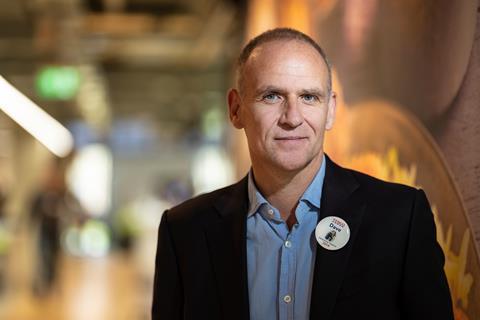
Progressive businesses are increasingly on the same page, with influential leaders such as Tesco’s Dave Lewis urging government to use regulation to create a level playing field so that corners cannot be cut in pursuit of ever-cheaper prices.
In an article in the Financial Times in July, Lewis called on the government to mandate food companies to introduce effective due diligence across supply chains, ensuring food sold in the UK is deforestation-free.
Just weeks later, the government acquiesced and brought forward new legislation that would make it illegal for businesses to use ‘forest risk’ commodities, such as palm oil and soya, that have not been produced in compliance with the relevant laws of the country in which they are grown.
Laws to create a level playing field will, however, take time to implement and be tough to police, and retailers wanting to serve the new ethical consumer in 2021 know they will need to go well beyond legal baselines.
“Brands and retailers must be willing to dramatically adapt their unethical business strategies, including scaling back on overproduction, creating low-impact versions of their ecommerce sites, driving a new era of moral commerce that rejects racism and oppressive systems, and setting themselves eco-ambitious retail challenges to ensure they become a transparent and honest post-purpose brand,” argues Holly Friend, senior foresight writer at consultancy The Future Laboratory.
How can retailers be a force for good?
What does this vision look like in practice? One example is the provision of green delivery options, identified as a priority for 10% of those surveyed by Retail Week.
Here, Amazon is leading the charge, having recently announced an order of 1,800 electric vans from Mercedes-Benz for its European delivery fleet. This is in addition to the 100,000 vans that Rivian, the electric vehicle start-up in which Amazon has a significant investment, is already due to make for the online giant by 2024.
Traditional retailers can also learn from start-ups that have placed sustainability at the heart of their business models.
In the first few months of lockdown, plant-based meal-delivery business Allplants saw its sales surge by 400% year on year.
The business not only taps into the trend for vegan diets, which research shows on average have a lower carbon footprint than those high in meat and dairy, but it is also a certified B-corp, with commitments ranging from carbon-neutral deliveries to paying employees the UK Living Wage.
“I do hope that retailers large and small are driven to do this, not only because it makes rational business sense, but because it’s all of our responsibilities to use business as a force for good,” says Allplants co-founder and chief executive Jonathan Petrides.
“What we need more of is to see big players spend less on the comms and marketing, and put way more focus into the actual doing and changing internally”
Jonathan Petrides, Allplants
“Quite simply, what we need more of is to see big players spend less on the comms and marketing, and put way more focus into the actual doing and changing internally – looking at their supply chains in detail; listening to what customers want and need; and committing fully to changing how they work.”
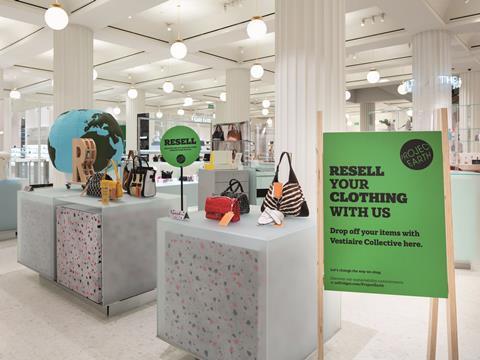
In August, Selfridges did just that. The department store launched a “transformational” sustainability programme that would “reinvent retail” in a contemporary and relevant way, promoting circular-economy business models, such as repair and resale, and encompassing everything from labelling to in-store events.
“Out of the global pandemic has come an understanding of how fragile and complex our systems are, but also how our planet and people can benefit if we act collectively with a shared purpose,” said Selfridges Group chair Alannah Weston as she introduced the Project Earth initiative.
“Now, more than ever, we must double down on our efforts to reinvent retail with sustainability at its heart and a way of working that is regenerative for humans and nature.”
One of Selfridges’ first initiatives is the launch of own-brand resale model Reselfridges.
Farfetch is already offering a similar service in partnership with resale and donation platform Thrift+, while John Lewis’ new collaboration with the world’s largest product rental marketplace, Fat Llama, to offer a furniture rental service is yet another sign that alternative business models are gaining traction.
Indeed, PwC’s Hooker believes the trend for “access over ownership” is set to increase, with the caveat that “the challenge for retailers will be in making the economics work”.
As thoughts turn to how best the world can rebuild after Covid-19, the consumerism that has powered Western economies in recent decades is set to come under scrutiny like never before. For retailers such as fast fashion brands, in the business of selling cheap, disposable products in high volumes, this is certain to pose challenges.
But it also presents an opportunity to rethink the entire purpose of retail and do so in a way that means businesses may one day be able to look back on the 2020 pandemic as a lesson learned, rather than a warning sign ignored.
Virtual events: Inside the mind of the new shopper
RWRC and a series of strategic partners will be uncovering who the 2021 consumer is, and what they’re looking for from retailers, in a series of virtual events running from September 21-25.
With leaders from the biggest retailers in the UK sharing insight from their organisations, as well as experts from outside the sector giving their expertise, this is a must-attend for any retailers who want to succeed in 2021.
Sessions include:
- Retail in 2020: who got it right?
- The great customer experience redesign
- What you need to thrive during tough economic times
- The 2020 consumer trends that are here to stay
Find out more and register here.




















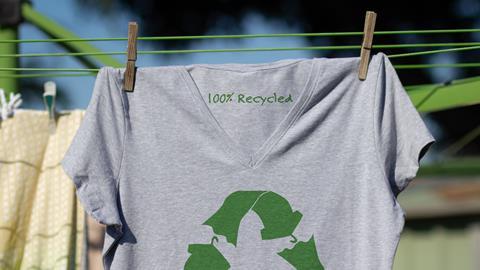




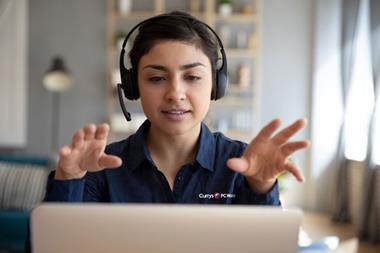
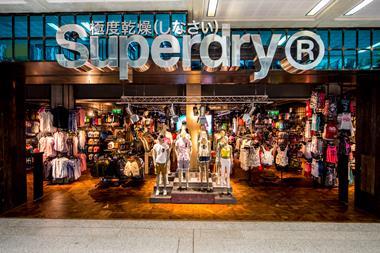
No comments yet